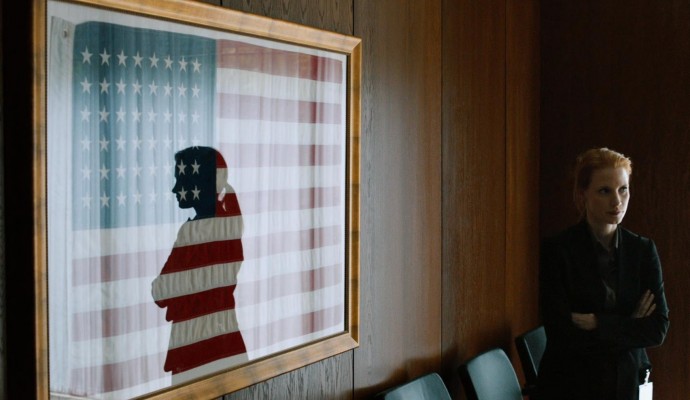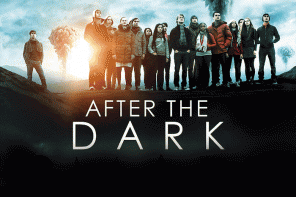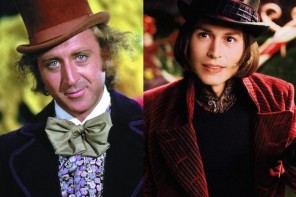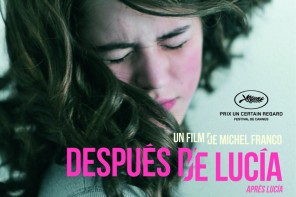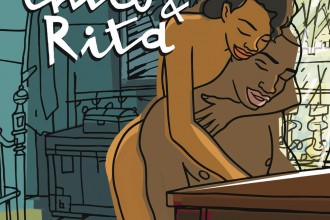Zero Dark Thirty (2012) by Kathryn Bigelow or Nothing to Report
In Zero Dark Thirty, Katryn Bigelow and her fellow screenwriter Mark Boal narrate the decade-long manhunt of Usama Bin Laden over a two-hours-and-a-half-long movie. This movie has sparkled some turmoil in the United States so far, mostly because of the way it represents torture. A few anti-torture activists and delegates have accused Bigelow and Boal of apologizing torture since it lead to the killing of Usama Bin Laden.
Having not been invited to the torture parties hosted by the CIA, I can not possibly say if torture did lead to the killing of the Cheikh. Nevertheless, I will defend Bigelow and Boal’s integrity : they probably never wanted to excuse torture. And they did not want to condemn it either. It is no use to wonder about their political orientation, theirs is the worst : they have none.
A notice at the very beginning of the movie allows you to know that this movie is drawn from « firsthand accounts ». In addition, Bigelow said repeatedly that Zero Dark Thirty was an honest depiction of the tools used by the CIA in order to find « UBL ». Boal said to French journalists : « We tried to remain neutral, and neither to exaggerate, nor to glorify nor to judge. » Boal and Bigelow maintained this statement when accused of defending a pro-torture stance. These are two filmmakers denying responsibility for what their movie shows or how it could be interpreted! Yet, when some said their movie was « inaccurate », they replied that « it is fiction » after all. So, according to the filmmakers, Zero Dark Thirty can be a part-documentary reconstitution of « firsthand accounts » or « a fiction », depending on what question they are asked. That shows enough about their honesty.
This movie feels like you are an embedded journalist team in the heart of a CIA mission. The steadicam shots and the trembling frame are used to make it even more realistic. « These are down-to-earth facts » says the camera. This aspect does not only come from Bigelow’s direction but also from Boal’s screenplay. Boal was an embedded journalist in 2004 during the Iraq War. From this experience he drew an article that became the first raw material for Bigelow’s Hurtlocker. Indeed the movie seems pretty well-documented about how the CIA managed to locate Bin Laden, though I, poor earthling, can barely judge the veracity of it. Boal and Bigelow were suspected by the Republican Party of having had access to classified CIA files about Bin Laden’s hunt. In fact the whole movie looks like a very long broadcast. The content of it is as enriching as you could expect from an average news channel: zilch!
In a conference « About television » held in 1996, french sociologist Pierre Bourdieu denounced the effects of television on thinkers, and especially on journalists. In short, not being given the proper time to analyze and explain information, the journalists and the so-called experts are only delivering truisms and conventional wisdom. Communicating an original thought would need the time to deconstruct all the clichés already existing, but using truisms allows these experts to gain a lot of time, they do not need to communicate since these ideas are already seeded into the watcher’s mind. The only thing that remains is the impression of communication, communication with no object like when you’re talking about the weather. It seems to me that these considerations perfectly fit to this movie.
So why was this movie debated that much? Why did I take the time to think about its meaning if this movie is so obvious? How could critics lay fat moral theories about a movie that has nothing to say? And why did anti-torture activists and pro-torture assholes think this movie was on the side of their enemies? The answer, I think, is good news. People have over-interpreted the film, showing then their belief that a movie is a way of expression, that it conveys ideas, ideals, dreams and nightmares. Whether right or wrong, a movie has got to have something to say ! If the audience is used to media’s pretended objectivity, it is not to films’. Let’s hope they never get used to it.
Now, like any average media, the most interesting part about the information conveyed by Zero Dark Thirty is probably what is hidden. This is what tells you the more about who is giving you the information. What is absent here is the point of view of the enemy. This movie has an American-centered point of view. Terrorists are only bodies to torture and shadows to shoot at. Another missing thing in this film to me is a question : Why can’t we capture Bin Laden instead of killing him? This way, we could judge him. What does these two missing elements tell us about Bigelow and Boal? That they are brainwashed Marines? Wait, didn’t I just say they were just like lousy journalists? Anyway they are what Bourdieu would call « fast-thinkers », if thinkers at all.

